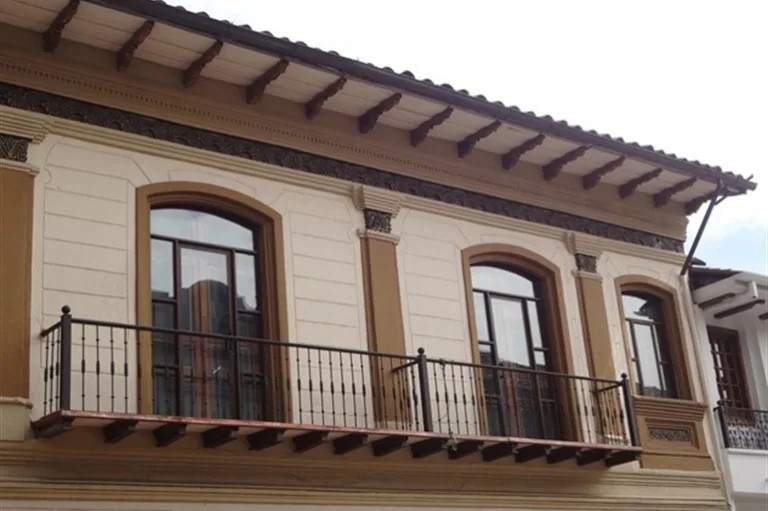Expats are too quick to seek legal solutions, attorney says; First, try to ‘work it out’
By Liam Higgins
According to Quito attorney Gustavo Martinez, too many North American expats consider filing a law suit before they try to resolve problems personally or through mediation.

Cuenca’s provincial court on Calle Florencia Astudillo.
“In Ecuador, legal action is always a last resort, not a starting point,” says Martinez, who holds law degrees in Ecuador and the U.S. “In the U.S., the mantra right out of the box seems to be ‘sue the bastards,’ and that simply doesn’t work here. This is not a litigious society. It’s up to expats to educate themselves culturally as well as legally or they are likely to waste a lot of time and money.”
Martinez says he frequently tells his U.S. clients that they don’t have a case. “When a client tells me what he would do back home, I tell him that, well, ‘you’re not back home’,” he says. He suggests that expats thinking of doing legal battle in Ecuador study the differences between civil law, which is practiced in Ecuador and most of the rest of the world, and common law, which is used in the U.S., Canada and Britain.
“When I visit the U.S., I’m always appalled at all the television ads and billboards encouraging law suits. It’s not a lot different than the ads for the lottery,” Martinez says. “This is the culture the gringos come from, and this is why they think first of suiting someone when they have a problem. To me, it’s confirmation of a broken legal system,” he says. He adds. “There seems to be a lot of built-in anger among U.S. citizens, including some of those who live in Ecuador. I’m not sure where it comes from but it’s sad.”
Corruption is still an occasional issue in the Ecuador’s legal system, Martinez says, but the incidences have dropped considerably in recent years. “Despite current criticism of his administration, President [Rafael] Correa’s reforms made the courts much more professional and Moreno and Lasso has maintained those reforms. Despite cases in which courts unfairly favored the government during the Correa years — and those did occur — the quality of justice for most people, including foreign residents, has improved greatly.”
Martinez, who has worked for expat clients in Cuenca and Manta as well as in Quito, says he knows of very few law suits filed by North Americans that have been successful, and this includes cases where it’s “gringo vs. gringo.”
“Cases that are ultimately decided in favor of foreigners often take years to resolve,” he says. “Justice is slow everywhere but it’s probably slower in Latin American than in North America.”
Unfortunately, Martinez says, there are too many Ecuadorian lawyers who tell expats that they have a good case when, in fact, they don’t. “In many situations this is done for financial gain, which I think is deplorable. It definitely takes advantage of the ignorance of their clients,” he says. “If an expat has a legal issue that cannot be resolved by other means, he or she should get more than one opinion before seeking a legal remedy.”
Martinez says that actions filed by expats are often sent down to the Defensoria del Pueblo, which is somewhat like small claims courts in the U.S., because they don’t meet the criteria for actions in the higher courts.
“If foreign clients have a grievance that cannot otherwise be resolved, I tell them we should take it to court,” he says. “On the other hand, I tell them that the process will probably be lengthy and that there is no guarantee of a successful outcome.”





















